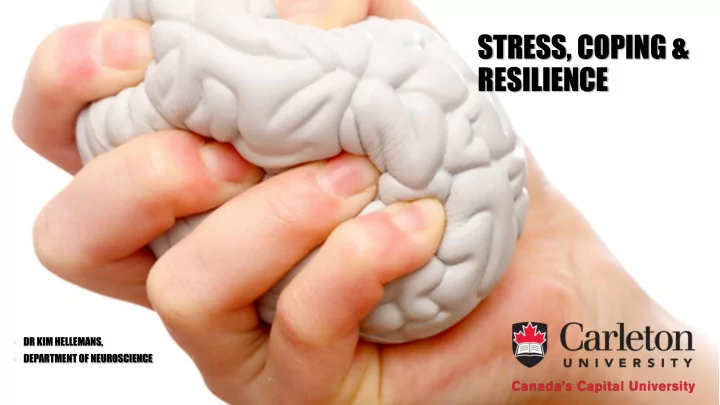

STRESS, COPING & RESILIENCE ◦ DR KIM HELLEMANS, ◦ DEPARTMENT OF NEUROSCIENCE
Outline 1. What is Stress? 2. Coping Strategies 3. Effects of Chronic Stress on the body & brain 4. Chronic stress & psychiatric disorders 5. Vulnerable populations 6. How to build resilience?
Stressor Stress response
FAST SLOW Hypothalamus Hypothalamus Adrenaline Pituitary Spinal cord Adrenal medulla Cortisol Adrenal cortex
How do I cope?
COPING
What if the stressor doesn’t end?
Depression Feelings of guilt Changes in appetite Changes in sleep Suicidal ideation Low energy / agitation Low mood Loss of pleasure
1 in 5 Canadians are affected by chronic pain
Anxiety Disorders
Substance Use Disorders
Post-traumatic Stress Disorder (PTSD)
“There is nothing wrong with me. My brain reacted in the way it did in order for me to survive.” – Joyce Halliday
Vulnerability to Mental Health Disorders
Treatment
Resilience
HOW CAN WE “RE - BRAND” STRESS?
G R O W T H M I N D S E T
BEING CHALLENGED BUILDS RESILIENCE
RESILIEN ILIENCE CE CAN AN BE BE LEAR ARNED NED
Evidence- supported ways to build resilience
FROM SURVIVING TO THRIVING: DEVELOPING PERSONAL AND ACADEMIC RESILIENCE
ANY QUESTIONS? @drkimhellemans @mindingthebrain Kim_hellemans@carleton.ca
Recommend
More recommend